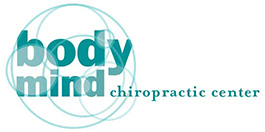
Recently, I met with a patient who was clearly distraught. Not uncommon; most people are managing a significant amount of stress. The patient, remembering one of our initial conversations, asked me about natural options for managing seizures. She went on to explain that her insurance company was no longer covering her seizure medication, which meant a monthly out-of-pocket cost of $1,700. She was at a loss, not knowing what her options could be. But she remembered our initial conversation. And hoped for the possibility of relief.
With every new patient, I perform a thorough patient history and a comprehensive physical and neurological examination. As a doctor of chiropractic and certified clinical nutritionist, I am interested in the underlying cause of dis-ease and how underlying neurological, biochemical and nutritional factors might influence a patient’s health. Accordingly, I always review a patient’s prescription drug intake. While I subscribe to the principle of the right molecule for the right person at the right time, which may include prescription drugs, I also recognize that long-term use of prescription medications does not return a patient to health. Prescription drugs merely manage symptoms but do nothing to treat the underlying cause of dysfunction. Alternatively, chiropractic adjustments, adequate nutrition, management of chronic stress and inflammation, and improving the health of the microbiome all work to improve overall health and well-being for a lifetime.
I have lost count of the number of patients who have said that they want to stop taking their prescription medications, having never imagined that they would fall prey to the spiral of declining health that is merely propped up by the use of prescription drugs. Because I do not have prescriptive authority, I always refer patients to their prescribing physician to have the conversation about reducing their prescription drug use. I do, however, address the side effects of prescription medications, especially as they pertain to the presenting symptoms, and I discuss the viable natural alternatives. In fact, medical research often concludes that natural remedies perform as well or better than the prescriptive alternative. At the very least, I recommend that a patient replenish essential nutrients that are invariably depleted with the use of prescription drugs.
But this situation was a first for me… a patient in a desperate situation because she could not afford the prescription medication that would prevent her seizures. For this patient, this was a true emergency. She only had 3 days worth of medication left.
Typically, seizure medications either enhance the action of GABA or block the action of glutamate. GABA is your calming neurotransmitter while glutamate is your excitatory neurotransmitter. Both of these neurotransmitters are in balance with one another, but they can become dysregulated with glutamate dominating the scene and causing over-excitation of the brain. When the brain is over-stimulated by glutamate, symptoms could include irritability, anxiety, morning headaches, and muscle tightness. Prolonged elevated levels of glutamate can lead to blood sugar dysregulation, fibromyalgia, and even seizure disorders.
The patient advised that she had never had grand mal seizures, only mild seizure activity that left her feeling checked-out and very tired. The patient started on a supplement that would regulate and balance her GABA and glutamate. Many supplements will have an immediate effect but I typically advise a minimum of 30 days on a supplement in order to see results.
As I suspected, once the patient ran out of medication, she began experiencing increased seizure activity. Even with the supplement, her body had to adjust to life without seizure medication and she would have to wait for the nutritional supplement to gradually change her physiology towards improved overall health. Because of the increased seizure activity, we added a very specific form of magnesium to block the glutamate receptor which would prevent the excitatory activity of glutamate in the brain. About a week after adding the additional supplement, the patient e-mailed and stated that she hadn’t had any seizure activity since adding the second supplement. Another week passed, and she remained seizure-free. Most importantly, the patient is now avoiding a lifetime of side effects caused by the prescription medication, which include drowsiness, lack of coordination, headache, slurred speech, confusion, impaired memory, constipation, and skin rash. Instead, she is reporting the side benefits of providing her body with quality nutrition. Her side benefits include calm and relaxation and an overall sense of well-being. She also reports that her long-term depression is lifting.
Now that the emergency has passed, it is time to calm down the inflammatory process that caused the GABA/glutamate dysregulation in the first place. The side benefits of calming down the inflammatory response will enhance this patient’s health for a lifetime.
Final Note…
Cost of Prescription Drug: $1,700
Cost of Natural Supplements: $110
Cost of supporting life-long health and healing: Priceless

